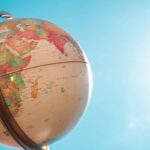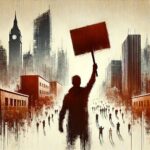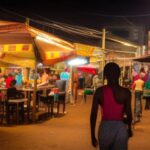Bring Mother Earth back to the fore in Kenya
Wangari Maathai is back, grabbing our attention about the damage we are doing to our collective mother, the planet. But where has she been? The good lady became inordinately quiet these past few years, ever since she dabbled in politics. She should have been banging our eardrums about the Mau Forest debacle a long time ago. But hopefully she’s back in full voice now – and many more of us need to join in.
How is it any of us imagine that the damage we do to our environment will not come back to haunt us? How is it that we have managed to spend all these years burning our forests, choking our rivers and drying our lakes, without an intelligent thought about the consequences? Human beings seem to only learn when those consequences are right in their faces.
Let me digress with a question. If you live in Nairobi, how often in the past few months have you or members of your family come down with a cold or influenza? And how often have you or your family encountered a stomach ailment of late? For most of us, these things are now alarmingly frequent, regardless of our level of income or the hygiene conditions in our homes.
Go to a high point and look down at the city of Nairobi early one morning. Observe the yellow-tinted pall that hangs over the city. That is no ‘fog’: it is the result of all the unchecked pollution, from car exhausts, factories, workshops and charcoal fires being sent into the atmosphere every day.
Or try to follow the food that you eat back through the chain it comes from before it lands on your dining table. Look at the conditions in which much meat that is supplied is reared or slaughtered; look where many vegetables that come to the city are grown, and what helps them to grow: watered by sewage, aired by car exhaust fumes. Losing weight may not be too much of a problem for you after that little investigation, I assure you…
The Mau Forest is now in every headline and on every politician’s lips. Long may it stay that way, for Kenyans need to wake up to the reality of environmental collapse. Can we cut through all the smokescreens and see this issue for what it really is? Sometime ago, the government of the day decided to “allocate” chunks of this majestic forest to its key friends, cronies and operatives. Those who benefited may have encouraged poor, landless families to also encroach on the forest, probably so that they could hide behind them.
Now that the destruction of this forest is causing such ructions across the region, we are clouding this issue in politics, voting blocs, compensations, recriminations and human rights. We need not confuse ourselves. This issue has nothing to do with Kalenjins or Kikuyus, nor with votes or favours. At heart, it is only about saving our futures.
This is why we should be teaching basic ecology in all our schools. The Mau may be located in the Rift Valley, but it does not belong to any group that happens to live there. The health of the Mau affects the health of Lake Victoria and other lakes and all the countries that border them; it even affects the countries up north watered by the Nile.
To turn this into a local issue is to engage in ignorance of the first order. Whenever someone burns a forest, dumps in a river or pumps into the air, that person is creating future harm not only for his own children, but for the children of all those around him, even across borders.
This stuff matters. If you doubt it, please read a book called “Collapse”, by the peerless professor Jared Diamond. It catalogues the very accomplished societies that throughout history have destroyed themselves by destroying their own environment – from the Mayans of central America, to the Norse of Greenland, to the people of Easter Island. All these people did not just impede their own progress – they wiped themselves out by harming their soils, rivers, oceans and trees.
Why do some societies make utterly stupid decisions about their environment? Diamond suggests that some the key causes are failure to understand interlinkages, failure to read trends, failure to build collective rather than individual incentives, and inaction by self-absorbed elite politicians. Now, does that sound horribly familiar or what?
We are finally talking and thinking hard about nature, thanks to Mau. Let us use this opportunity to bring our ailing Mother Earth back to the forefront of our priorities. Let us start to measure the health of our environment, and to place severe penalties on its abuse. So far, we live in a country where Mombasa’s council and water company have recently admitted that they have been dumping raw sewage into the ocean without treating it – apparently because they were unable to maintain their treatment plant. God help a country willing to swim in its own shit.

Buy Sunny Bindra's new book
The X in CX
here »
Popular Posts
- Make this your year of being boringJanuary 4, 2026
- Snakes and Ladders, AKA your lifeJanuary 25, 2026
- Can we please stop with the corporate jargon?January 11, 2026
- The man who passed by one markJanuary 18, 2026
- Pretty isn’t the productFebruary 1, 2026















